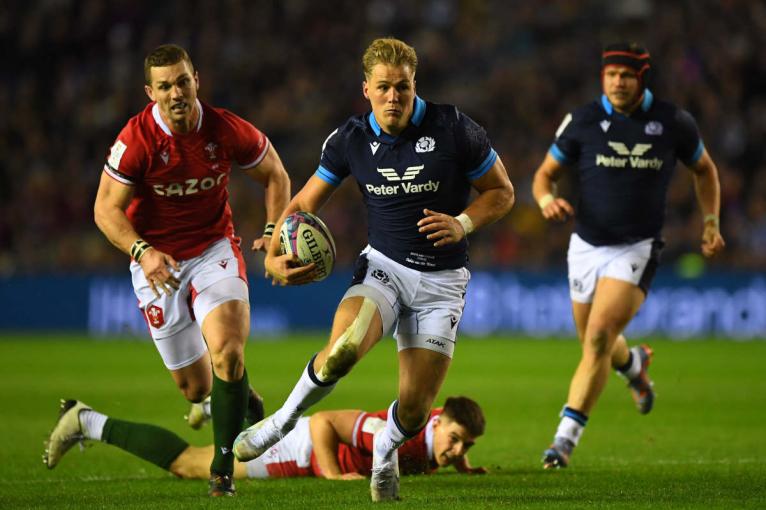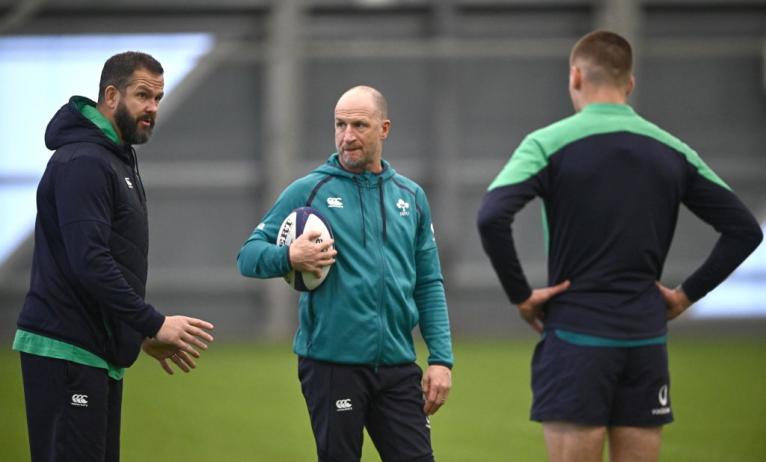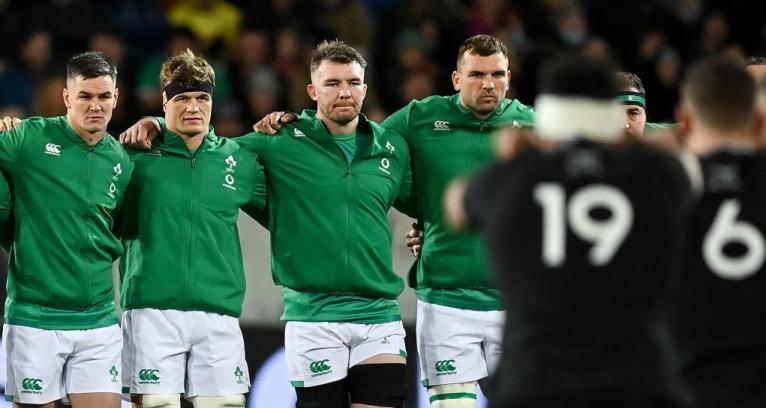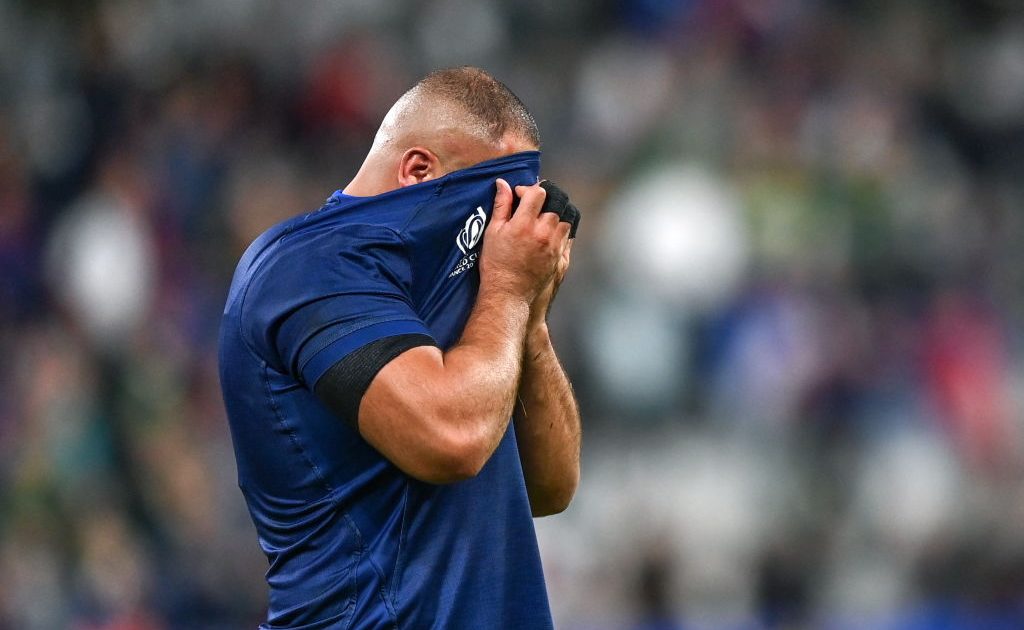South Africa is already in the Six Nations

There is so much South African meat knocking about Scottish rugby at the minute that black puddings are being made with kudu blood around the Highlands. WP Nel, Pierre Schoeman, Kyle Steyn and Duhan van der Merwe are now patriot Scots and have tartan stitched on their hearts, but their origins provide an interesting narrative thread for rugby fans on both sides of the equator. Or at least for those fans capable of having lighthearted conversations about a man’s national identity without veering into nasty jingoism.
So, in the spirit of frivolity and not taking rugby as seriously as it should be at times, here forth is the one variable that links the half-dozen Six Nations sides. No, it’s not title aspirations, the heartache of a botched 2023 World Cup or disdain for the English. It is of course their ties to South Africa.
Scotland
Where else to start? The four aforementioned Saffas-turned-Scots have added heft up front and razzle-dazzle out wide. When van der Merwe cut England to shreds in what was later recognised as the try of 2023, commentator Mark Robson wondered how a man who is built like a tyrannosaurus-rex could move like a ballet dancer. Clearly he’s never had to navigate Clifton’s second beach in December.

This bond runs deeper than just this current side. It wasn’t long ago that Ollie Kebble and Allan Dell were propping up Scotland’s scrum with the immaculately bearded pair of Josh Strauss and Cornell du Preez causing chaos on the flank. Further back, in the early days of professionalism, John Allan – uncle of Italy’s Tommasso Allan – played for both countries either side of the 1995 World Cup.
There are seven players currently on the books at Glasgow and Edinburgh that could still represent their native South Africa while Franco Smith’s work with the Warriors has earned him love up and down the River Clyde.
Which means if the Scots are to achieve the previously unachievable, and lift a title they so desperately crave, they’ll owe a debt of gratitude to the protein supplied by Free State cows.
England
It would be remiss – especially for any patriot Saffa – not to kick this one off with Mike Catt. After all, the sight of him getting steamrolled by Jonah Lomu while playing for the former colonial power never gets old. Of course, the man with the letters OBE next to his name contributed more to English rugby than merely melting in the tackle. A World Cup winner’s medal and a British & Irish Lions triumph on South African soil means his legend is secure.

Since WB Thomson donned the Red Rose in 1892, 28 South African-born players have represented England. Two, including Catt and Harold Geoffrey ‘Tuppy’ Owen Smith skippered the side.
Two clubs in recent years have had so many South Africans that the word ‘Saffa’ morphed into a prefix. And though the Saffa-Sharks in Sale have yet to win a trophy, Saracens, or, if you like, the Saffacens, moulded by Brendan Venter, would lift five Premiership titles and three European Championships across a dynastic decade in the 2010s. Today, all ten Premiership sides are represented by at least one of the 29 South Africans in England’s top flight.
Wales
With no direct links to South Africa in this year’s squad, Warren Gatland can at least take heart that his forwards have been cutting their teeth against South African packs in the URC. Love or loathe the competition, there is no doubt that the constant rumbling against southern hemisphere heavies has added grunt to European outfits.
Bradley Roberts, who has not made the 34-man group, was the last connection to South Africa from within the camp. The Dragons hooker was born in Durban and attended the prestigious Michaelhouse school, alma mater of Saracen’s Michael Rhodes, the Ulster and Ireland back-rower Robbie Diack, and Patrick Howard who won 35 caps for the Dragons.
South African rugby players regularly cite the Welsh as one of the toughest opponents around. Though the cultural connections are tenuous, the shared values are firmly entrenched.
Italy
It would be disingenuous to claim the Zimbabwean-born Sebastian Negri, though there’s no denying the impact Hilton College and Western Province had on his development. Still, in Braam Steyn and Johan Meyer, Italy have recently fielded back-rowers from Africa’s most southern edge. Keeping that tradition alive is the Johannesburg-born No. 8 Ross Vintcent who is yet another exciting prospect from Italy’s lucrative youth programme.
Two South Africans have served as head coach of the Azzurri, though the less said about their records the better. Franco Smith lost all 13 matches in charge during a short interim stay. Nick Mallett claimed some big scalps during his four-year tenure, including a 22-21 win over France in Rome, but couldn’t once lift the side off the bottom of the table.
France
After playing a leading role in knocking France out of their own World Cup last year, South Africa’s Jesse Kriel wore a sheepish grin as he conveyed an admiration for French rugby and hoped local supporters would get behind the Boks.
It didn’t quite work that way. There was no love lost for Siya Kolisi’s team who were booed for most of their stay in Paris. If bridges are to be built, perhaps the broad shoulders of the hulking 128kg lock Paul Willemse can help with their construction.
Like England, France is a welcoming home for South Africans looking to test their mettle in a competitive – and well-paying – European league. Besides Kolisi at Racing 92, 22 South Africans ply their trade in France. None presently wear the colours of Toulon, though they’ve had their fill in the past with the likes of Bryan Habana, Juan Smith, Bakkies Botha and Danie Rossouw offering ballast to the all-conquering Galacticos that won a hat-trick of Champions Cups from 2013.
Ireland
Born on the dusty streets of Vereeniging, raised on nothing but raw meat and zebra milk until he was nine, Josh van der Flier is as South African as the stalagmites in the Sterkfontein Caves.
None of that is true. World Rugby’s player of the year for 2022 was actually born in Wicklow, but the relationship between Ireland and South Africa is strong enough that every so often a gullible supporter takes the bait on social media.

The most recent – and factually accurate – link comes in the shape of South Africa’s World Cup winning coach, Jaques Nienaber, who is now marshalling the defence of the juggernauts at Leinster. Having spent two years with Rassie Erasmus at Munster – whose fans so generously bequeathed The Cranberries song Zombie to Springboks supporters during the World Cup – Nienaber shouldn’t get too home sick on the Emerald Isle. At least he’ll have lock Jason Jenkins for company round the braai.
Staying on the pitch, Jean Kleyn’s journey from Springboks hopeful to Ireland starter to a World Cup winner with South Africa is remarkable. Unlike CJ Stander, Rob Herring and Quin Roux – who all represented Ireland with distinction – Kleyn, like the winger Jack Gage almost 100 years ago, has experience wearing both shades of green.
So, no matter who wins the Six Nations, a South African will celebrate. They might be orchestrating Italy’s defence, Ireland’s attack, Scotland’s scrum or France’s kicking game. They might be watching on as punters in a new land or recalling their own glory days on famous grounds. They might have even had a hand in the result.

















